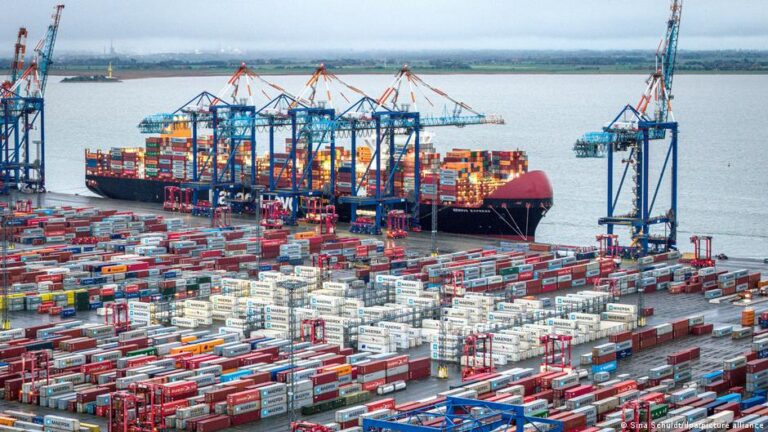China has again overtaken the US to become Germany’s top trading partner, thanks to a rise in imports to Germany in the first three quarters of 2025.
This comes amid tariff tensions with both countries, albeit with Donald Trump’s trade policies probably getting the most attention, and as German exports to both the core markets falter. Car sales suffered in particular.
What were the core figures?
The government’s statistics office, Destatis, published corrected data on Wednesday showing a total trade volume with China of €185.9 billion (roughly $215 billion) between January and September. That’s an increase of 0.6% compared to the same period last year.
Meanwhile, trade with the US was down 3.9% compared to the first nine months of 2024, standing at €184.7 billion.
China had usurped the US as Germany’s largest trade partner in 2016 and then stayed there consistently, until it lost the top spot last year.
Imports to Germany from both countries rose, by 2.8% in the case of the US but by 8.5% from China.
Meanwhile, the value of German exports fell in both directions, down 12.3% to China and down 7.8% to the US.
But the US remains a more lucrative export market for Germany overall, with sales worth €112.7 billion compared to €61.4 billion — meaning Germany still has a trade surplus with the US and a trade deficit with China.
Indeed, the second most prolific importer of products to Germany is not the US, but the neighboring Netherlands, with just a slight edge over the US in third.
Further signs of car trade collapse
Exports of German cars and car parts fell much more sharply, amid tariff disputes with both countries and as China’s fast-growing car industry continues to deal with more and more of its high-end domestic demand itself, at the expense of manufacturers all over the world.
Sales to the US dipped by €3.6 billion, or 13.9%, amid the introduction of higher 15% tariffs for imports from the EU, and after a brief period where the tariffs rose from less than 3% to roughly 27.5% in the first half of the year after Trump’s return.
Meanwhile, sales to China dipped by €6.1 billion, or 35.9%. This comes as the EU and China wrangle over the high tariffs put on Chinese electric vehicle sales in Europe.
Edited by: Wesley Rahn


